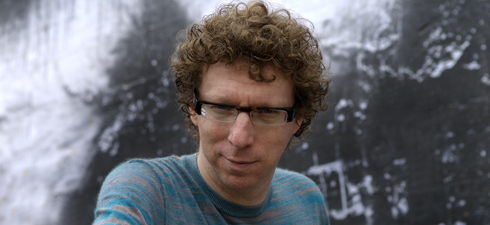Two years after I emigrated to New York, a man in a downtown Manhattan bar called me “Eurotrash”. I was familiar with the term “white trash” though it conjured up ideas that don’t really fit the definition. For me “white trash” brought to mind the picture of rowdy businessmen and young bankers who are unpleasant in public. “Eurotrash” was new to me. I should have read more Bret Easton Ellis.
This drunken American saw me as a haughty snob who couldn’t find his place on either side of the Atlantic. I didn’t need a dictionary to figure that out. Maybe he was hoping I would give him a knuckle sandwich. That seemed to me an honourable thing to do. But even in middle school, I learned that no insult is worth loosing teeth over. Generally, the best solution is to put on a friendly smile, so that’s what I did.
I have trouble thinking of Europe without thinking of that incident. One can choose to become an American. A hyphenated identity offers many possibilities: Korean-American, or Italian-American, or Scottish-American. To become European, I had to move to New York.
Born in 1912 and 1927 in Berlin, my parents were (and are), if anything, probably European as well as Jewish. This didn’t come about through idealism but against their will. In 1939, my mother tried to go to Cuba with her parents. But Cuba was no longer accepting Jewish refugees from Germany. The United States had closed its borders and that’s how my mother and her family found themselves in the Netherlands. After the war and time spent in several concentration camps, she returned to the Netherlands, without her parents. She tried to live in Paris as an au pair, then in Buenos Aries where she had some family and also in Israel working as a waitress. She finally returned to Amsterdam where she never really felt at home. She was, in a way, profoundly German, but she never considered returning to Berlin. She was too proud for that. Being European, even if she never called herself that, was a fall back solution.
My father’s story is pretty similar. He survived the war by staying in various hiding places in the Netherlands and although he boasted that he spoke Dutch better than most Dutch people, I don’t think he ever really felt Dutch. The last years of his life, he walked around, for reasons I failed to understand, with an English textbook in his black leather coat.
It’s true that while born in Berlin, his parents came from Lemberg (today called Lviv) and that his first passport was delivered by the Austro-Hungarian Empire. His was the same situation as my mother’s – European for lack of anything better. Unlike my mother, he actually used the word, and not without a certain pride. One day when I asked him “Why don’t you go to Israel?” he answered, ‘I’m a European”. It was difficult in the Amsterdam of the 1970s to proclaim one’s Austro-Hungarian origins. These days, Europe is something suspect, an illness, a museum at best, probably a failure. Anyone claiming to be European is, in fact, proclaiming something else – that he’s cosmopolitan, homeless, a traitor to his country. A writer friend, who, like me, left for the United States, told me, “It’s easier to love America when you don’t live there”.
There is some truth in that. Although I like America, or New York, at least, I can’t forget that the States refused entry to my grandparents and to my mother. I don’t think I’m in New York to become an American. Fate brought me to New York and even if I’d wanted to become American, it’s the very spot where I am and remain European. An American passport would do nothing to change that.
In an essay, Hannah Arendt said that Jews can be conscious pariahs. Jews can, so to speak, adopt a pariah status from which, in any case, they can’t escape. Without wanting to fictionalise pariahs and without calling all Europeans ‘the new Jews”, the most attractive status for even non-Jews is a “conscious pariah”.
In partnership with The Guardian
Was this article useful? If so we are delighted!
It is freely available because we believe that the right to free and independent information is essential for democracy. But this right is not guaranteed forever, and independence comes at a cost. We need your support in order to continue publishing independent, multilingual news for all Europeans.
Discover our subscription offers and their exclusive benefits and become a member of our community now!












